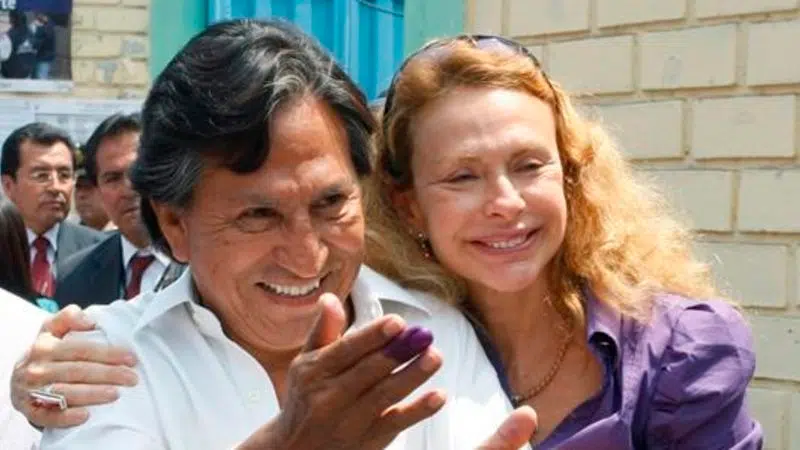
US judge denies bail to ex-Peru president in corruption case
SAN FRANCISCO — A U.S. judge in San Francisco denied bail to former Peruvian President Alejandro Toledo in an extradition hearing Thursday that ended with an emotional outburst by his wife who had to be dragged out of the courtroom after she started shouting at prosecutors.
Magistrate Judge Thomas S. Hixson denied bail for the second time to Toledo who is wanted in his native country in a corruption scandal.
“Dr. Toledo has not carried the burden of proof to show he is not a risk of flight and so I’ll maintain the detention order,” judge Hixson said.
Shortly after, Toledo’s wife, Eliane Karp, began cursing and shouting at prosecutors they will be “personally responsible for his death” and was dragged by guards out of the courtroom.


